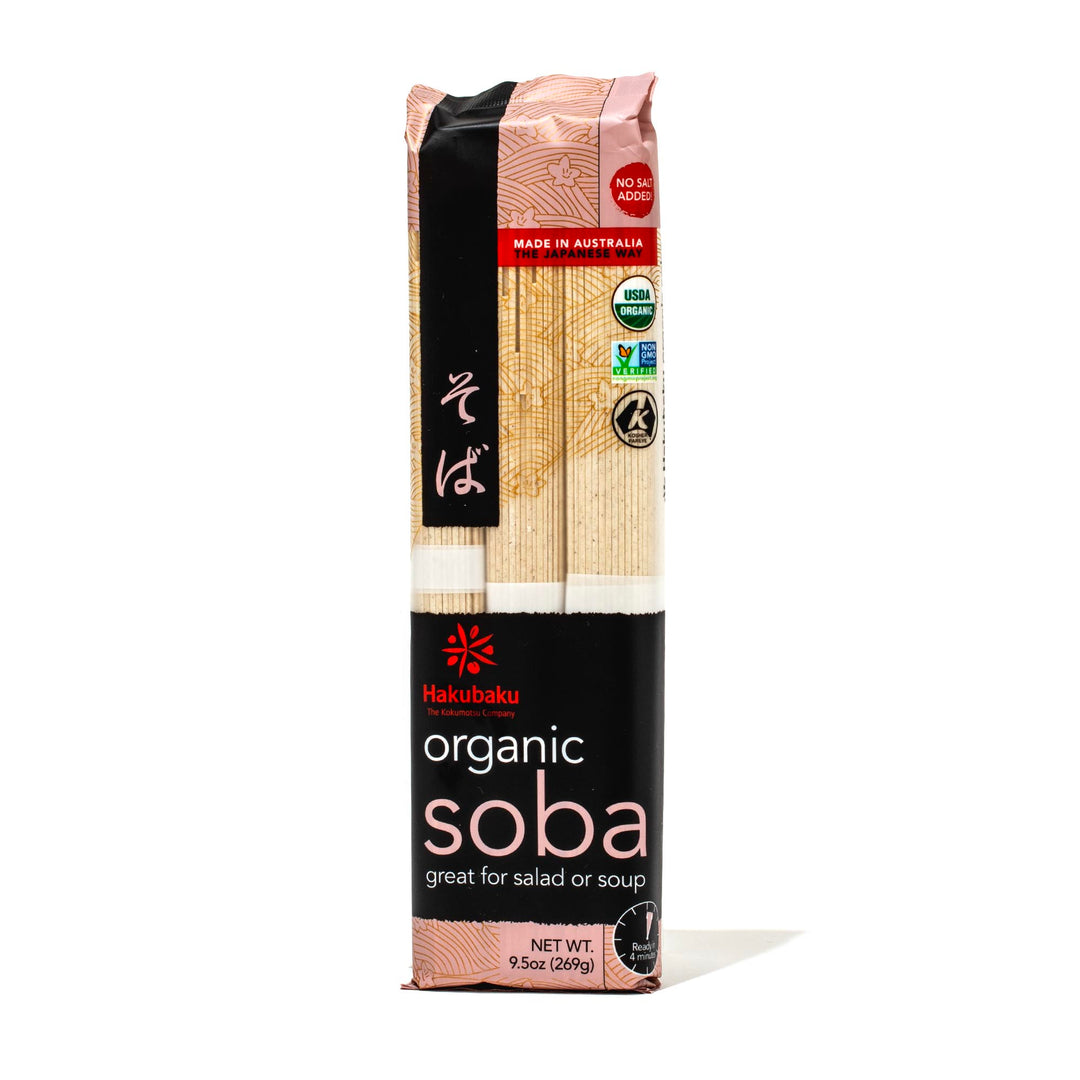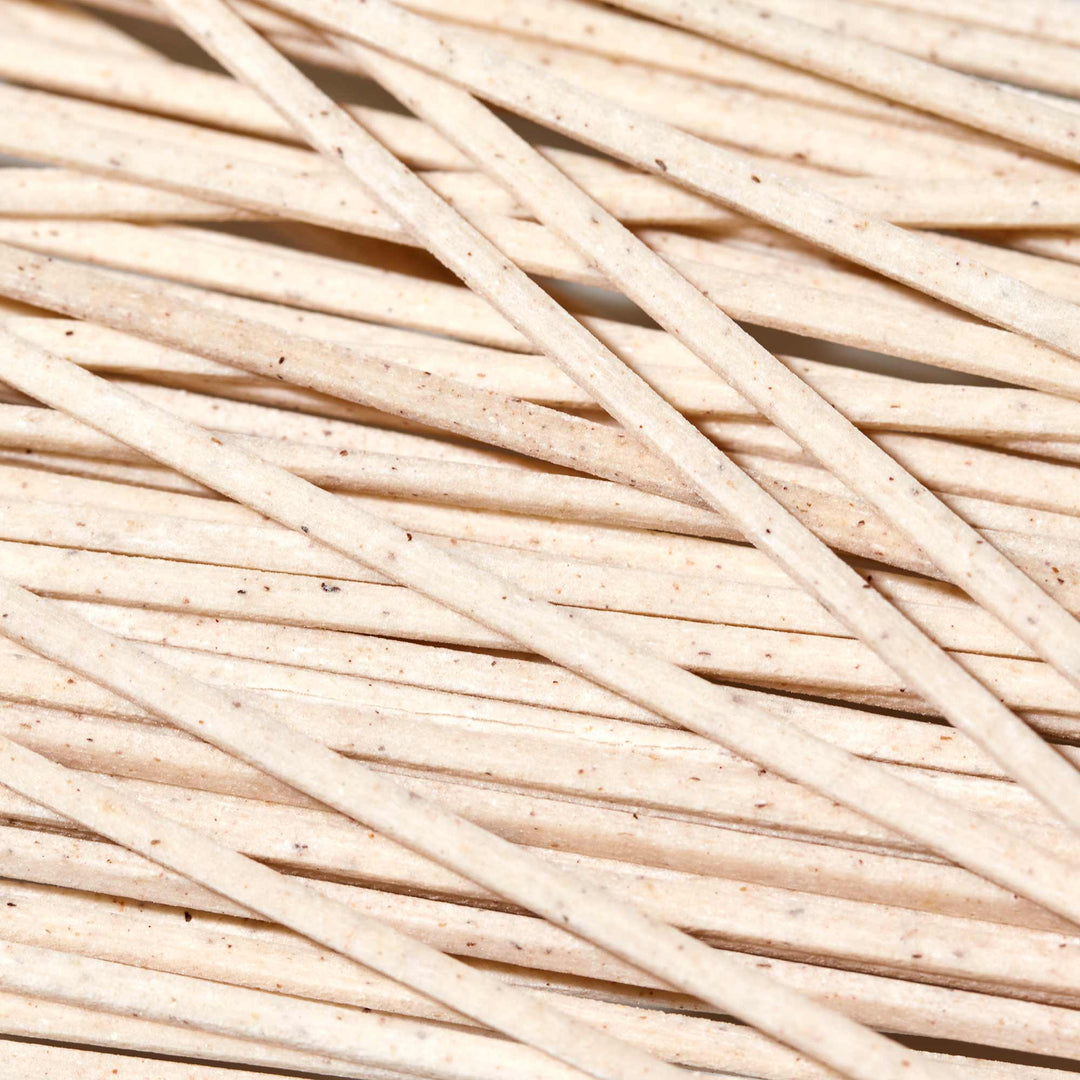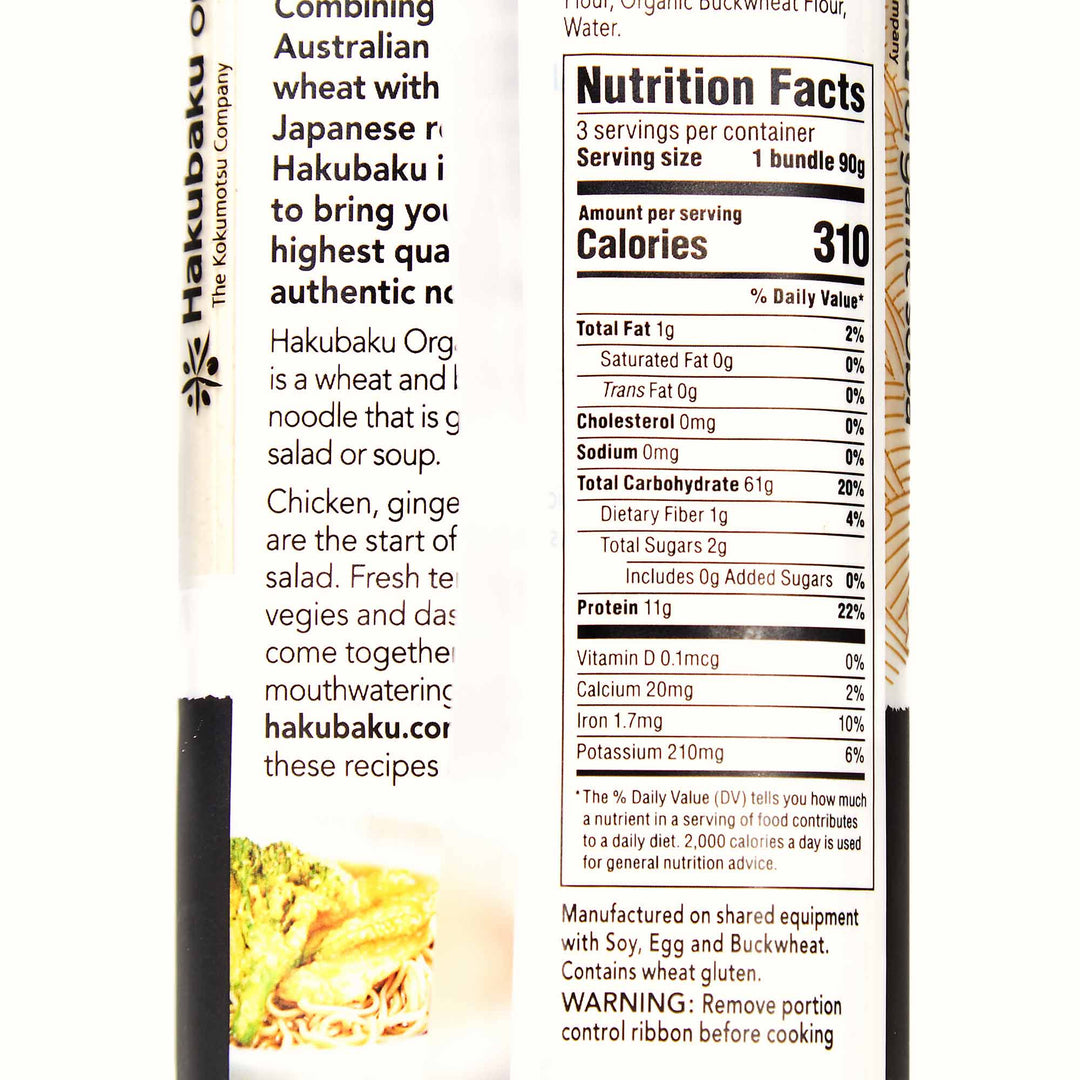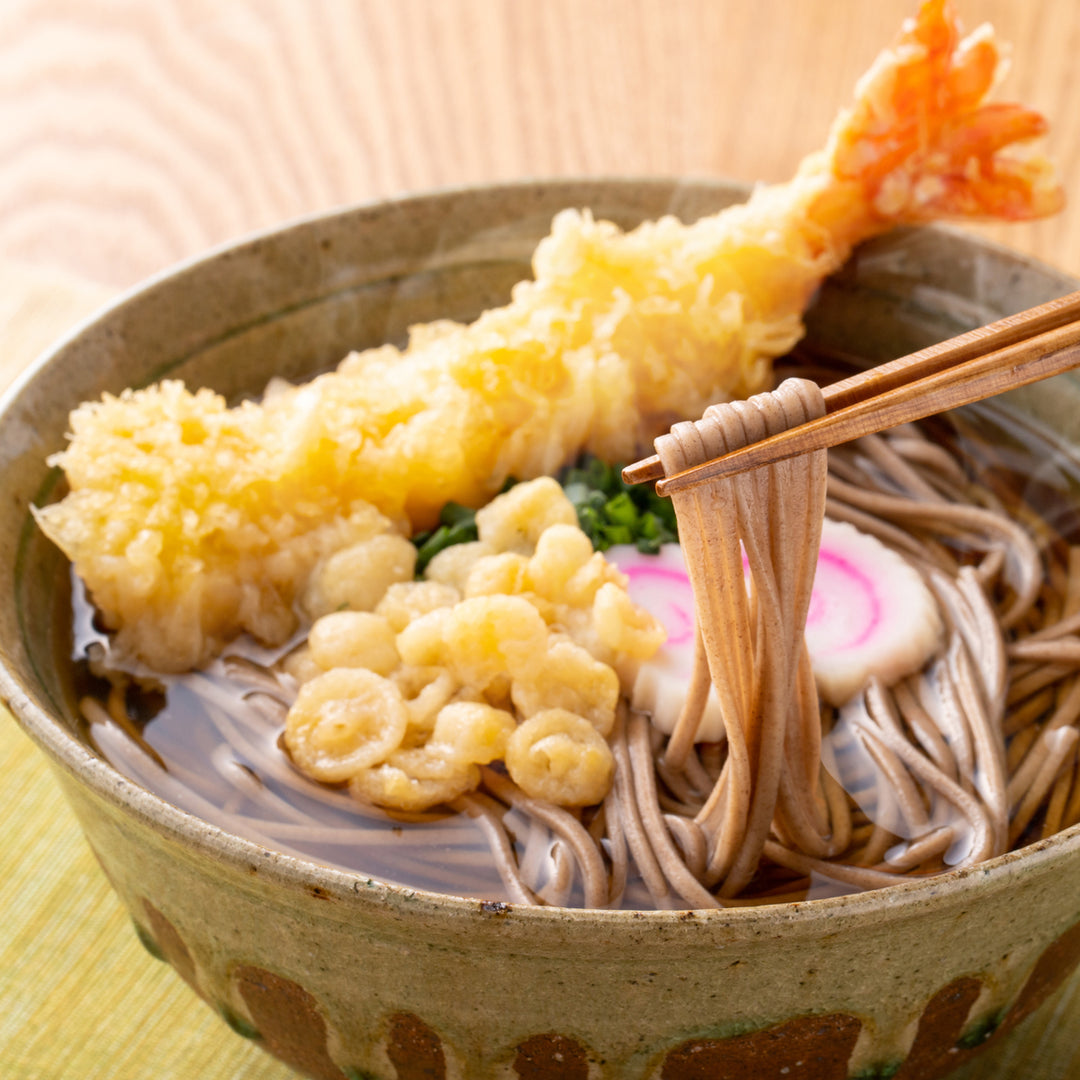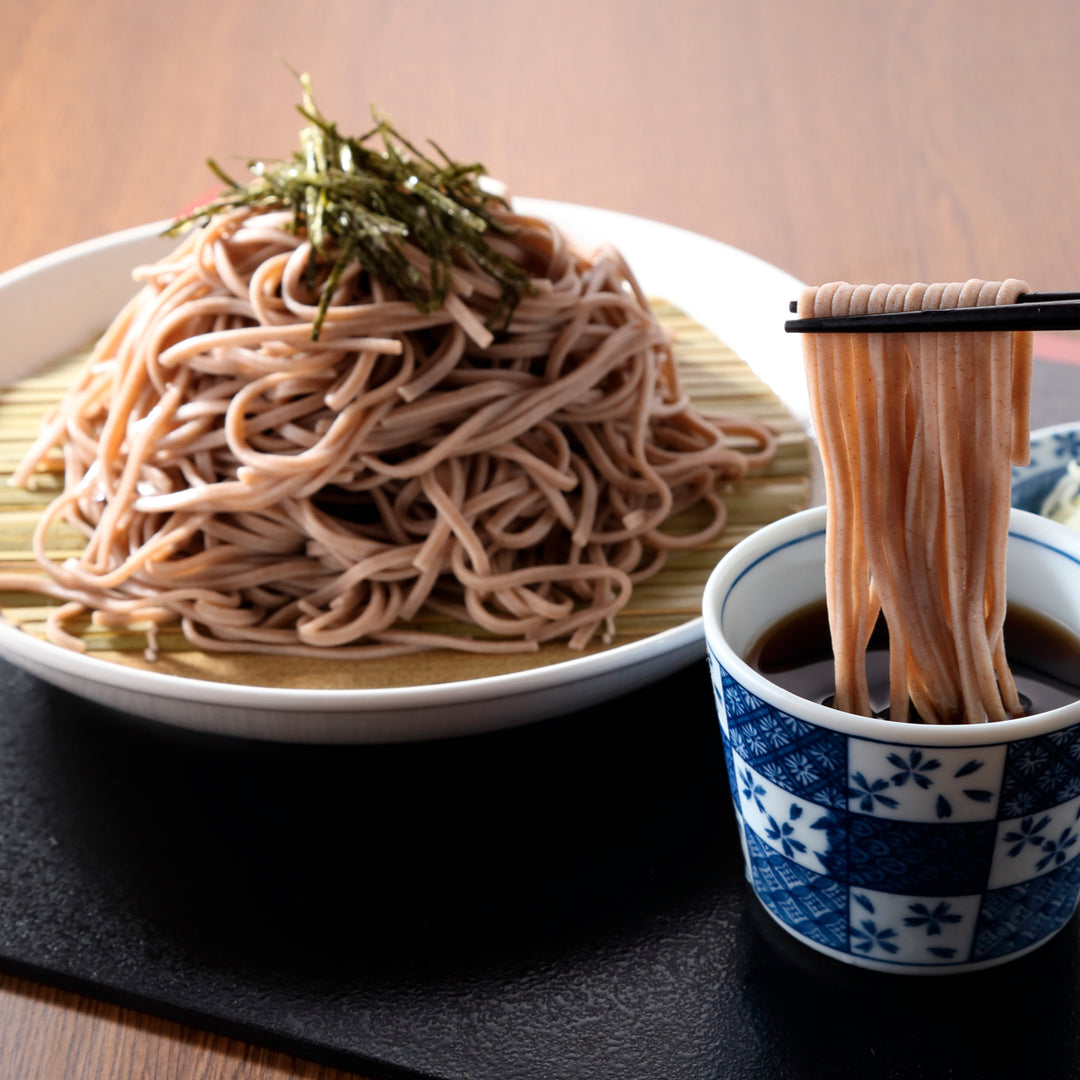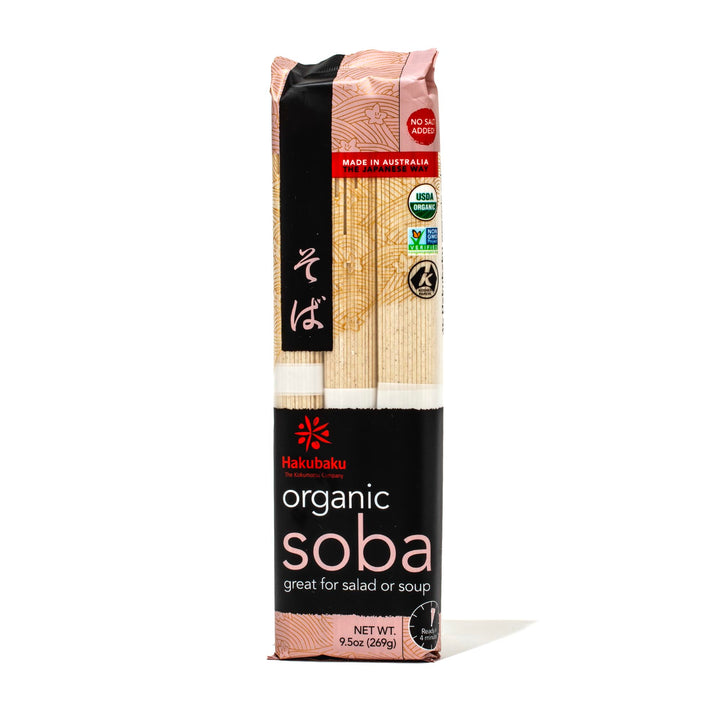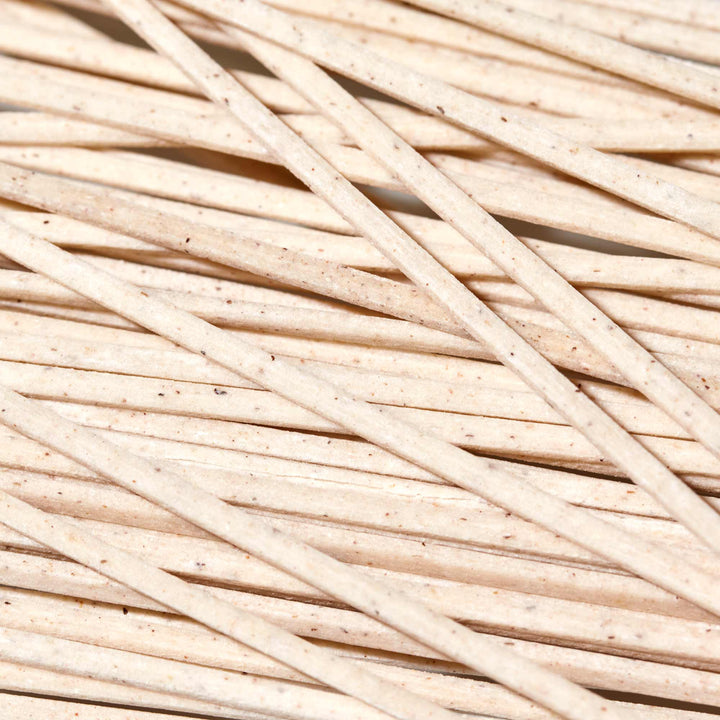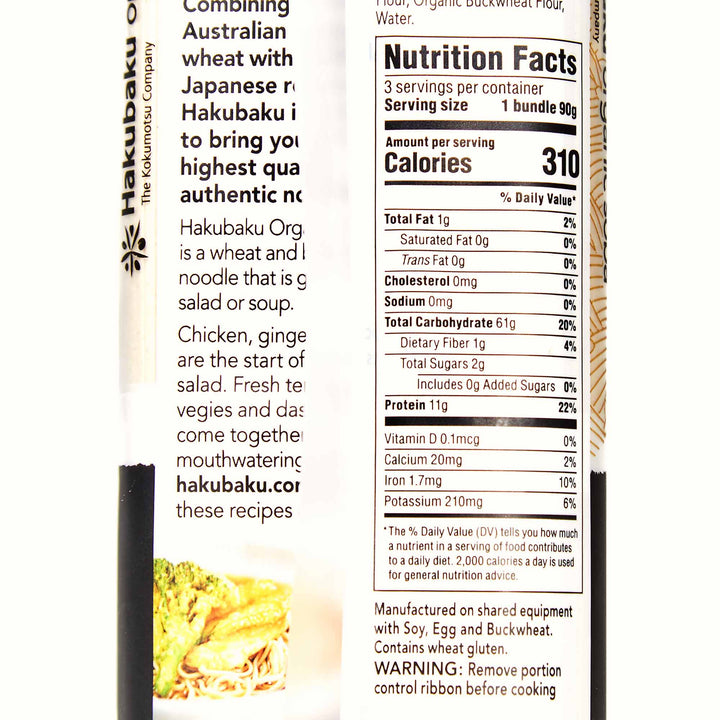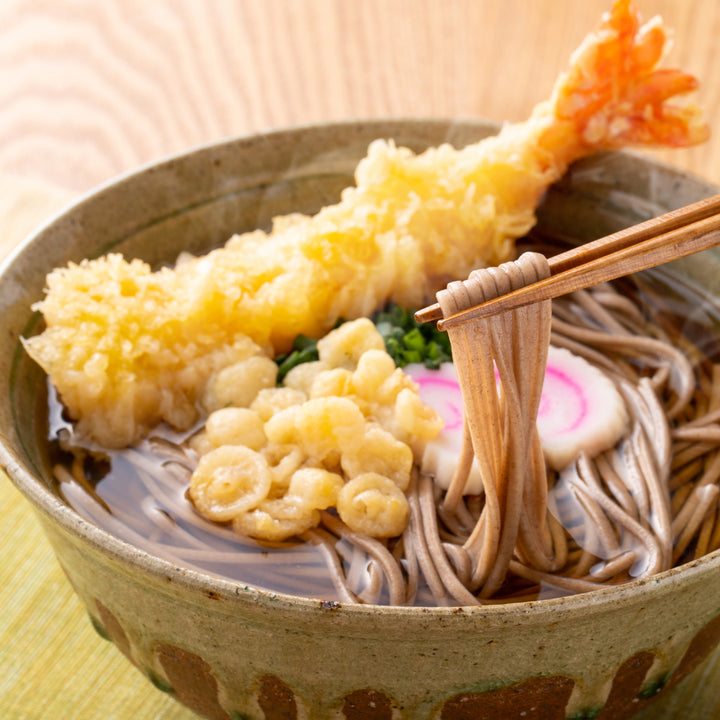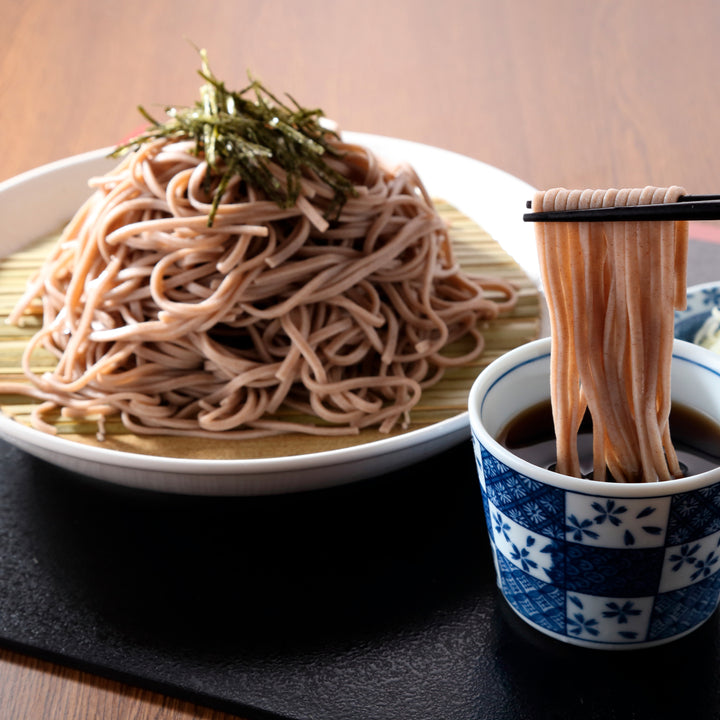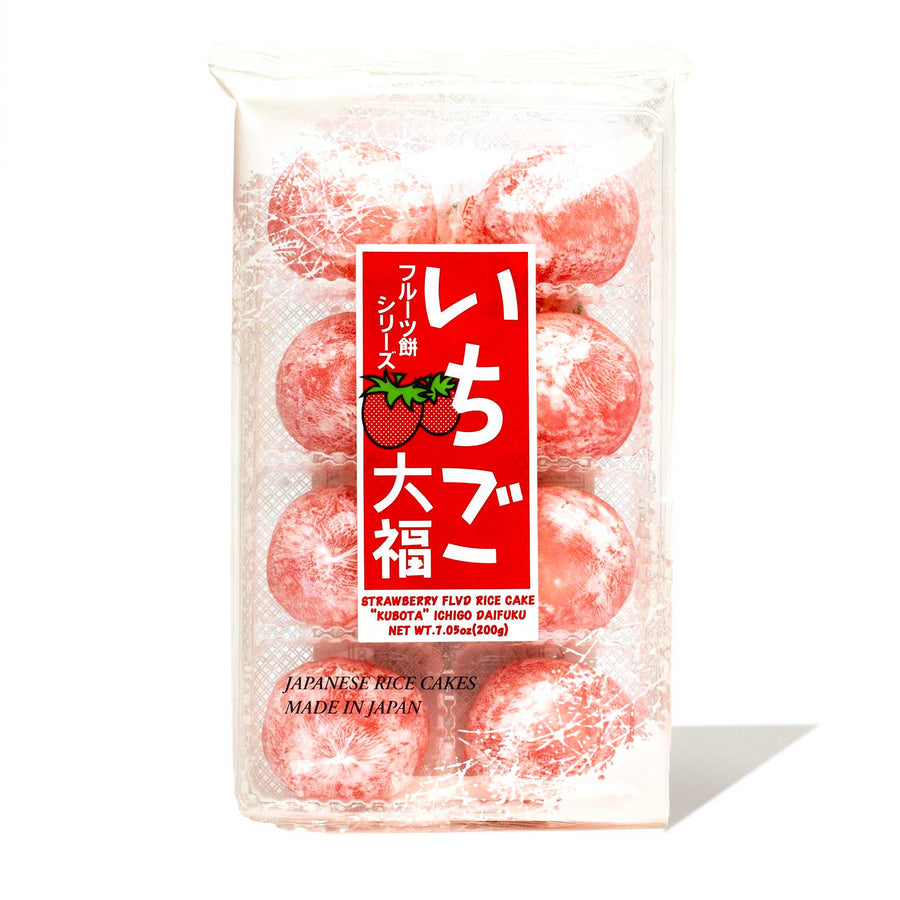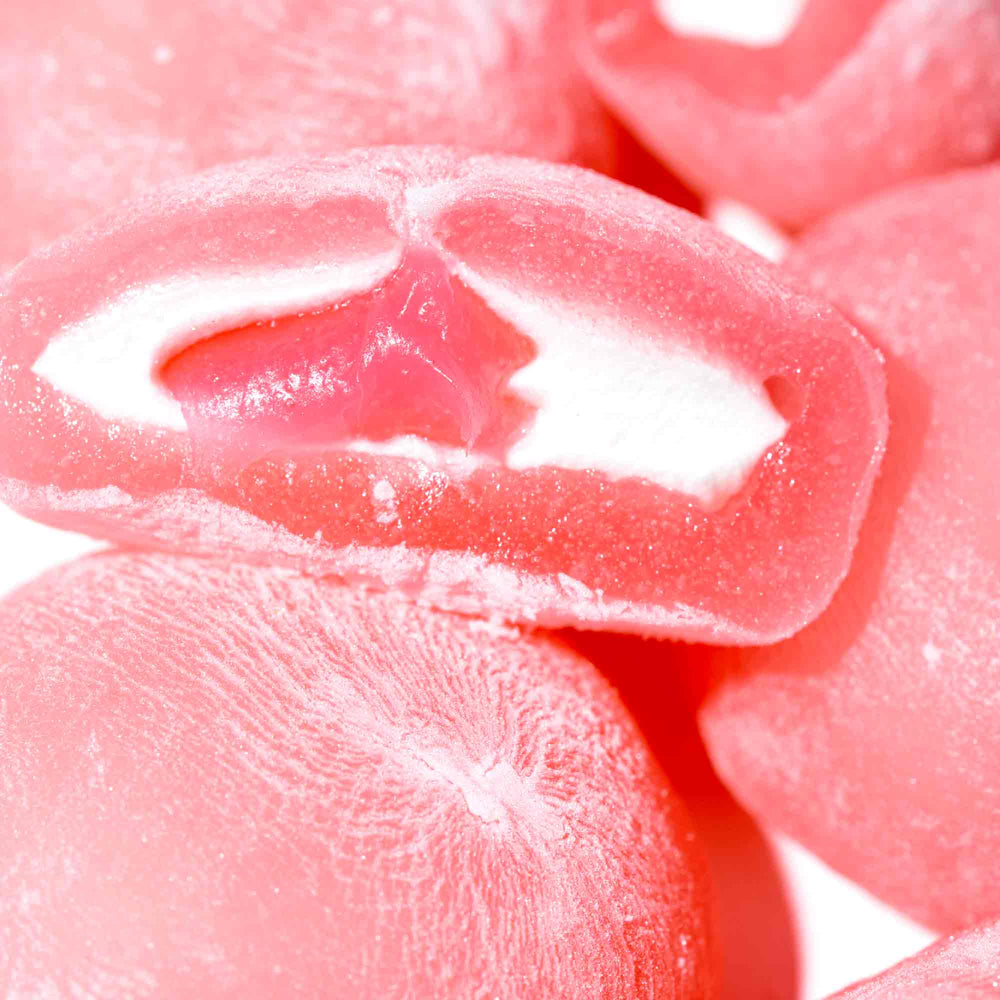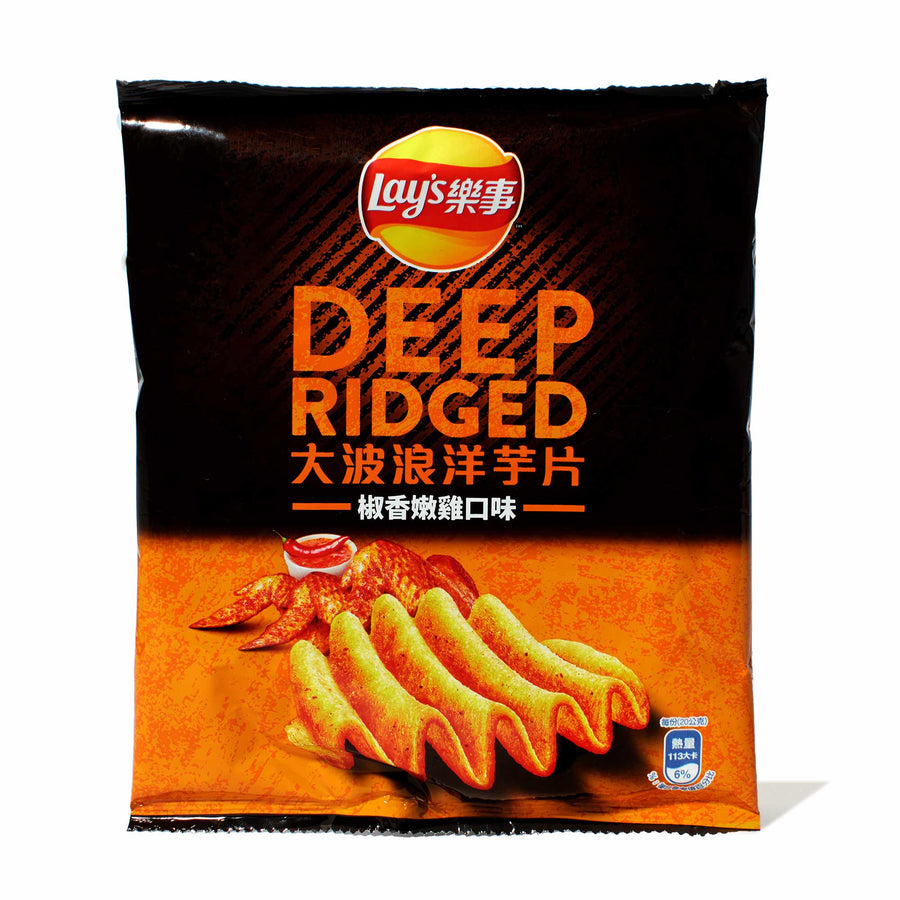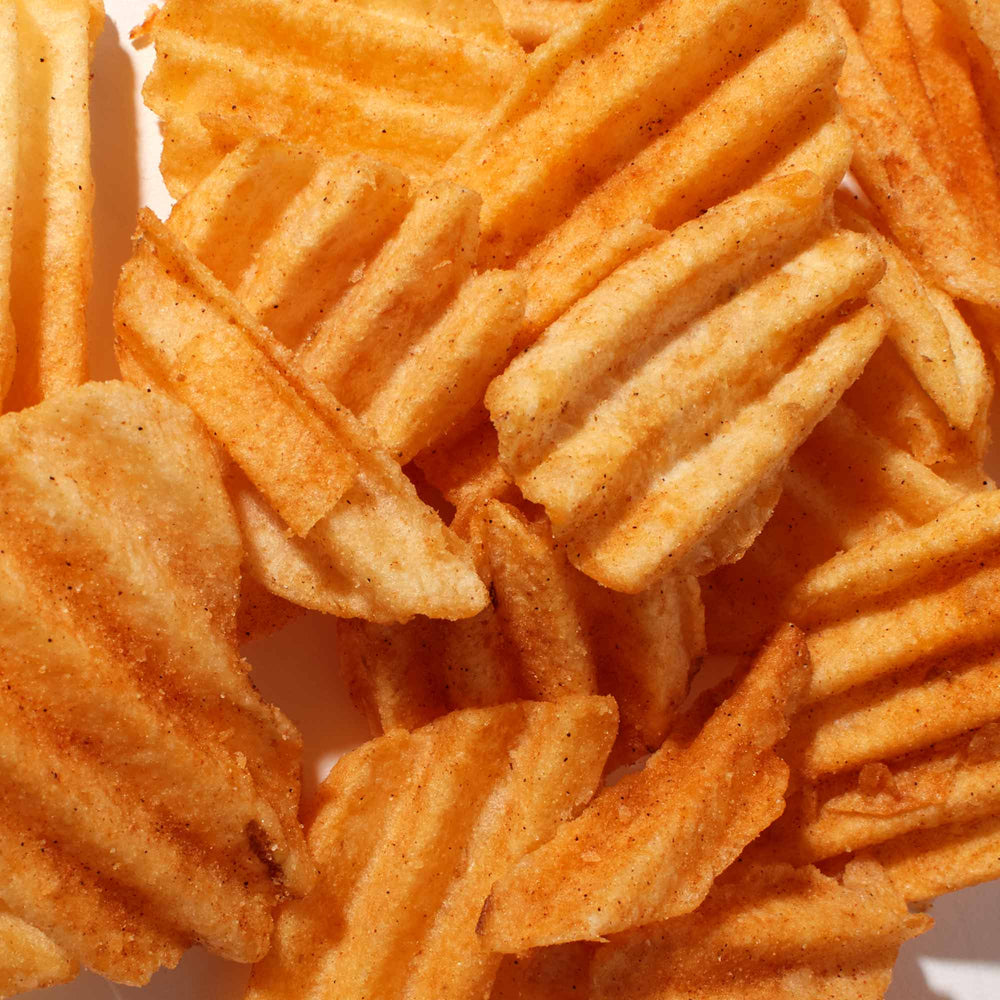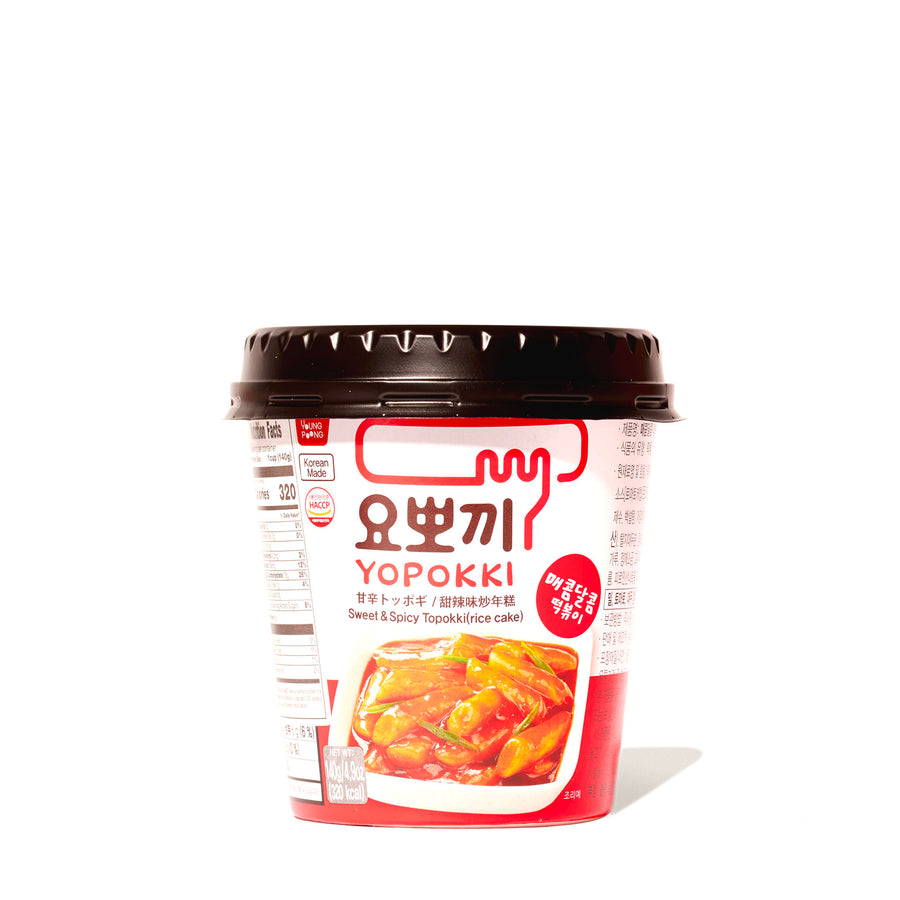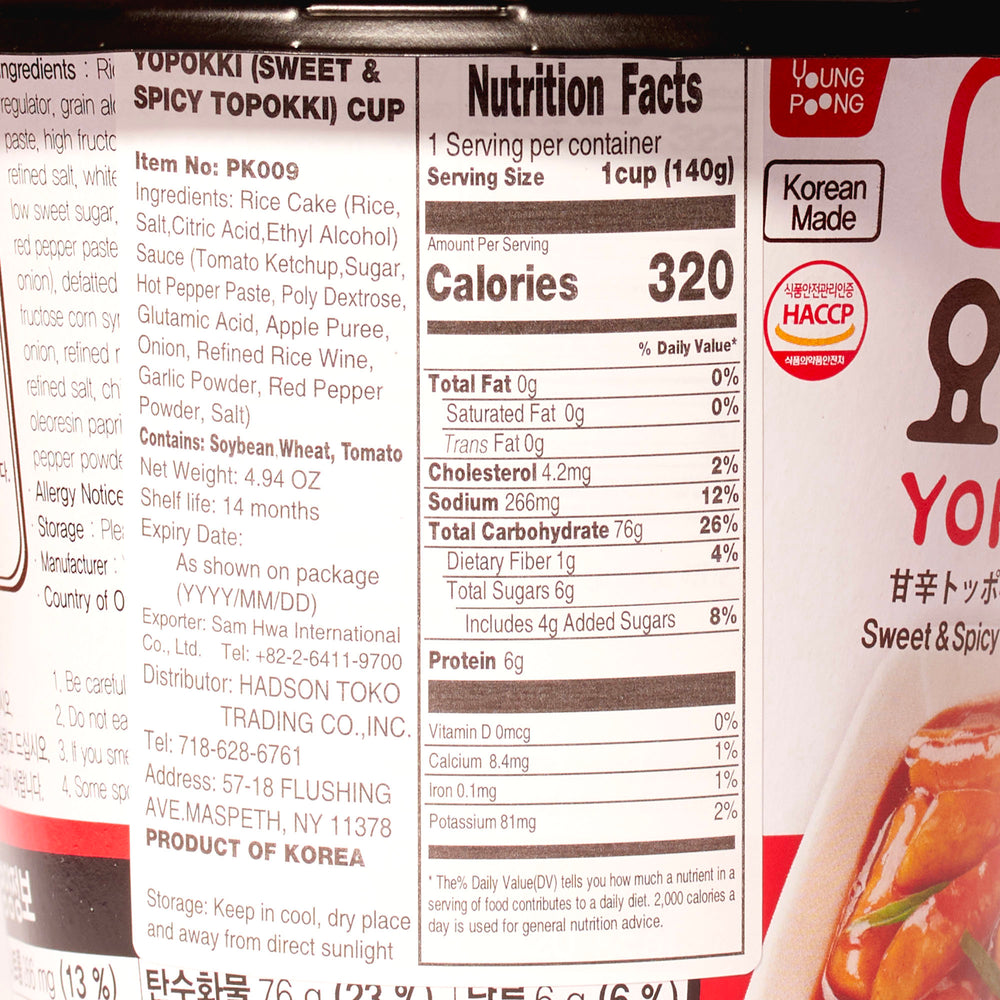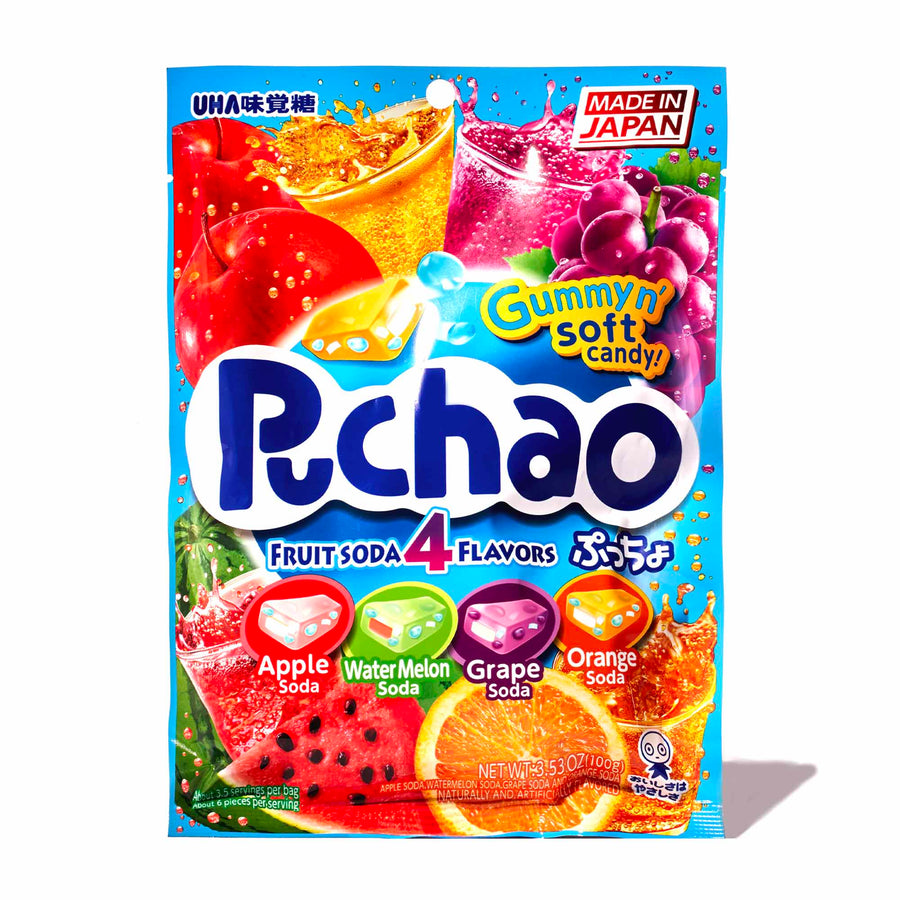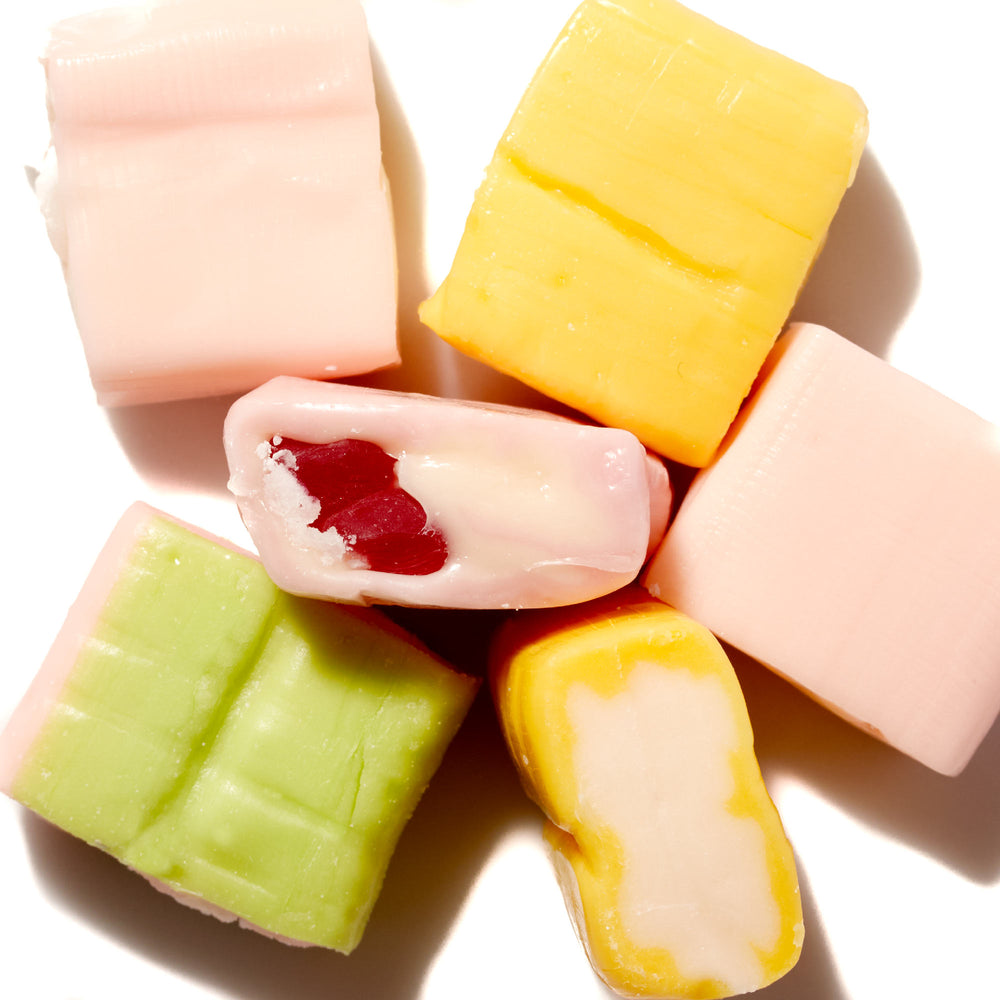Hakubaku Organic Soba Noodles
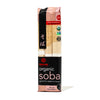
Hakubaku Organic Soba Noodles
Disclaimer
×Bokksu is not responsible for the accuracy of the products’ nutritional or allergen information. Warning: California’s Proposition 65 may be in effect. For more information,visit www.P65Warnings.ca.gov.
Some Bokksu Market products are produced overseas and may have a Production Date printed on the packaging, rather than a Best Buy Date as is standard in North America. If your product appears expired, do not be alarmed! This is most likely the Production Date. All items have been double checked to ensure they are not expired and safe to eat.
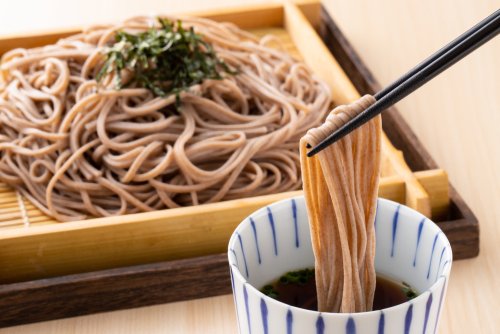
What are Soba Noodles?
Soba noodles are light brown in color and have a somewhat nutty flavor and chewy texture. Soba’s unique taste comes from the fact that it is made from buckwheat rather than wheat. Buckwheat comes from a flowering plant that is related to rhubarb while wheat comes from a cereal that is considered a grass. Soba is a good source of fiber, calcium, protein, carbs, and other nutrients. Best yet, soba is gluten free, so it can be enjoyed by those who don’t tolerate wheat.
How to Cook With Soba Noodles
Soba can be eaten hot in a soup like ramen. Due to its more distinctive taste, there are usually fewer ingredients placed on top of soba noodles compared to ramen or udon. Just a few pieces of crispy tempura pieces, slices of fish cake, a smattering of scallions, and a deep dashi broth is enough to make a delicious hot noodle dish.
Soba noodles are also eaten cold with a dipping sauce. On a hot day, cold soba is one of the go-to dishes for Japanese people. Trust us, nothing satisfies more on a hot day than cold Japanese noodles. It is usually presented on a simple woven bamboo tray with a few garnishes and the all-important sauce.
Disclaimer
×Bokksu is not responsible for the accuracy of the products’ nutritional or allergen information. Warning: California’s Proposition 65 may be in effect. For more information,visit www.P65Warnings.ca.gov.
Some Bokksu Market products are produced overseas and may have a Production Date printed on the packaging, rather than a Best Buy Date as is standard in North America. If your product appears expired, do not be alarmed! This is most likely the Production Date. All items have been double checked to ensure they are not expired and safe to eat.
Disclaimer
×Bokksu is not responsible for the accuracy of the products’ nutritional or allergen information. Warning: California’s Proposition 65 may be in effect. For more information,visit www.P65Warnings.ca.gov.
Some Bokksu Market products are produced overseas and may have a Production Date printed on the packaging, rather than a Best Buy Date as is standard in North America. If your product appears expired, do not be alarmed! This is most likely the Production Date. All items have been double checked to ensure they are not expired and safe to eat.
Disclaimer
×Bokksu is not responsible for the accuracy of the products’ nutritional or allergen information. Warning: California’s Proposition 65 may be in effect. For more information,visit www.P65Warnings.ca.gov.
Some Bokksu Market products are produced overseas and may have a Production Date printed on the packaging, rather than a Best Buy Date as is standard in North America. If your product appears expired, do not be alarmed! This is most likely the Production Date. All items have been double checked to ensure they are not expired and safe to eat.
Disclaimer
×Bokksu is not responsible for the accuracy of the products’ nutritional or allergen information. Warning: California’s Proposition 65 may be in effect. For more information,visit www.P65Warnings.ca.gov.
Some Bokksu Market products are produced overseas and may have a Production Date printed on the packaging, rather than a Best Buy Date as is standard in North America. If your product appears expired, do not be alarmed! This is most likely the Production Date. All items have been double checked to ensure they are not expired and safe to eat.


